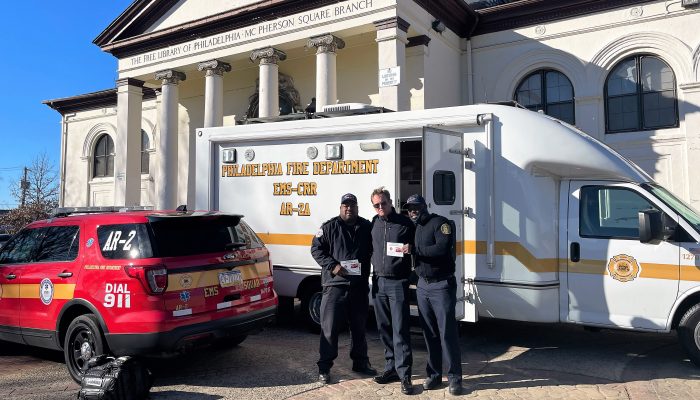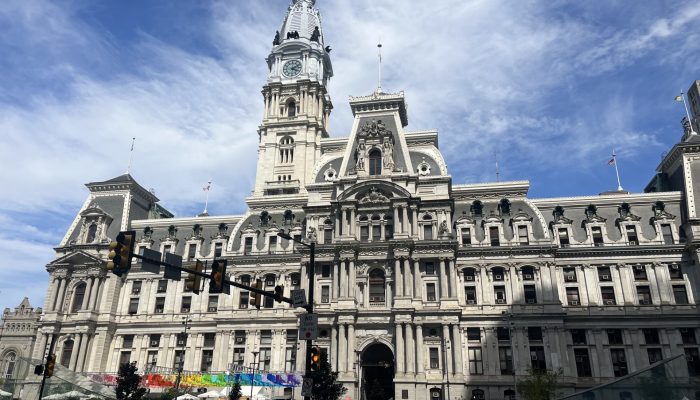The Philadelphia Fire Department (PFD) has received a $265,000 grant to bolster its innovative approach to the opioid epidemic, with the ultimate goal of getting more overdose survivors into treatment.
The funding from the University of Baltimore’s Center for Drug Policy and Prevention (UBalt) will enable the PFD to fully staff its alternative EMS response unit known as AR-2.
This unit pairs a PFD paramedic with a social services case manager in a marked SUV to respond to overdoses in the hard-hit Kensington neighborhood. Overdose survivors are offered access to treatment for substance use disorder instead of an ambulance ride to a hospital.
Preliminary data indicates about 60 percent of AR-2’s clients accepted treatment in 2021.
“AR-2 provides dedicated, life-saving service to one of Philadelphia’s most vulnerable communities thanks to our tremendous partnerships. We’re grateful that UBalt sees the value in supporting this critically important work,” said Fire Commissioner Adam K. Thiel.
AR-2 is a collaboration between PFD EMS providers and City public health agencies. AR-2 staff essentially can place survivors in treatment on the spot (when space is available) because of the paramedic’s medical assessment skills and the case manager’s connections to treatment facilities.
After beginning service in April 2019, however, AR-2 personnel quickly realized that it was not ideal for clients to undergo the required assessment and await placement while sitting in an SUV. That’s why the PFD introduced AR-2A, a small recreational vehicle that serves as a safe, private waiting room and mobile office space.
“Being able to remove a client from the street environment is vital to the success of our other metrics,” said Paramedic Capt. Tabitha Boyle, who oversees the unit. “Clients get agitated and often change their minds about treatment if they spend a long time in the back seat of an SUV.”
AR-2A is a repurposed bookmobile stocked with snacks, beverages and comfort items. It helps increase client retention and allows AR-2 to return to the field while AR-2A personnel assists clients. But AR-2A has not always deployed due to periodic staffing shortages.
The support from UBalt will enable the PFD to fully staff and equip AR-2A during the same hours as AR-2, which operates daily from 8:30 a.m. to 7 p.m. Specifically, the grant will fund three PFD EMT positions for a year and provide two laptops in an effort to improve the treatment acceptance rate among overdose survivors.
The grant comes as Philadelphia is on a trajectory to record the highest number of drug overdose deaths in a calendar year: 639 people died of an overdose between January and June 2021, according to the most recent statistics released by the City’s Department of Public Health.
Information on the City’s harm-reduction initiatives, including trainings on overdose reversals and naloxone distributions, can be found at phillynaloxone.org.



